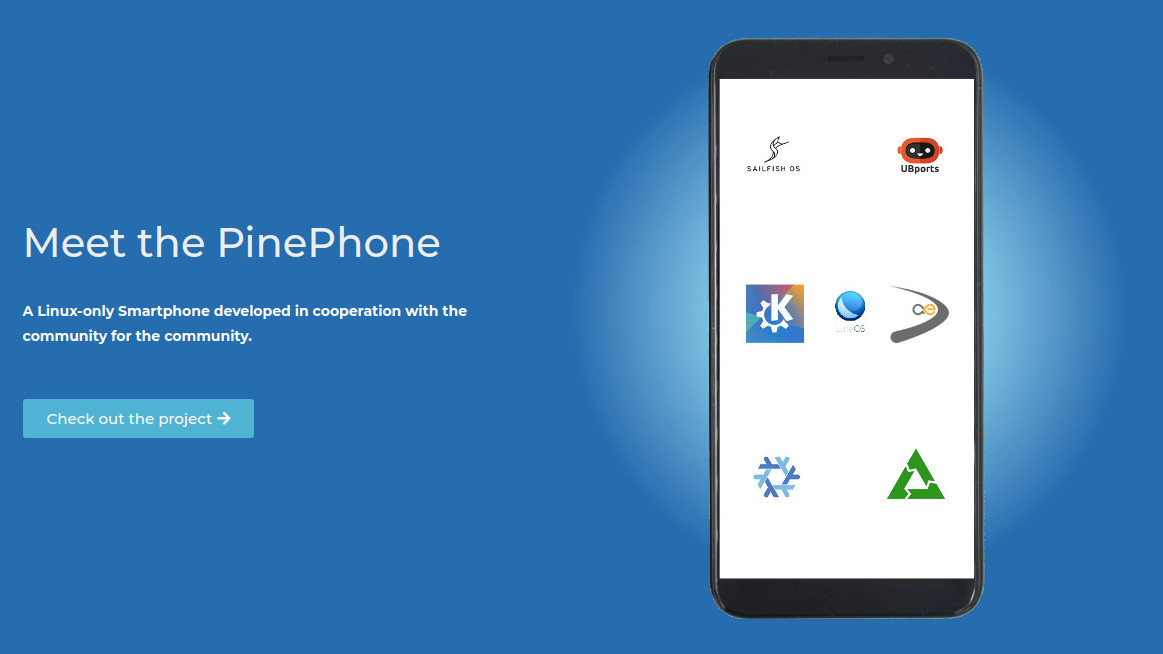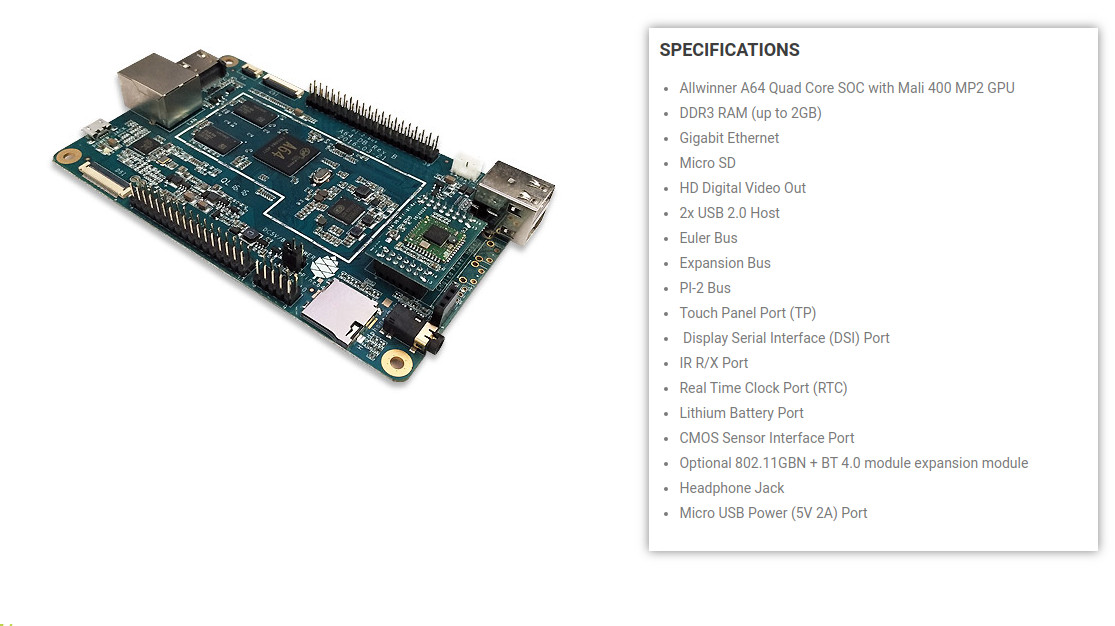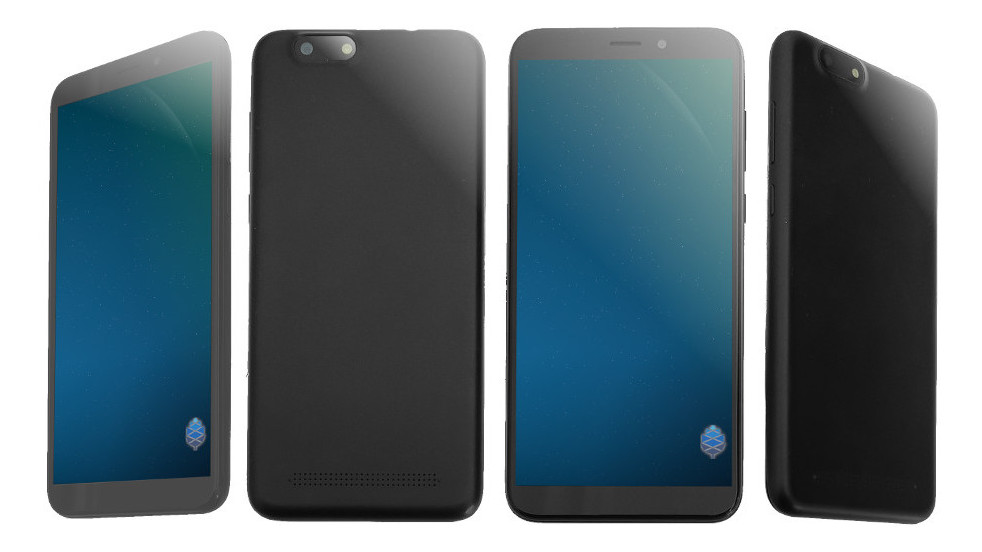It's no secret that two operating systems hold the lion's share of the mobile market — Android and iOS. This current duopoly doesn't give users much choice in the way of OS offerings, even though there is no shortage of hardware. In the past, Microsoft tried to break into the market to no avail, and Huawei will release its own offering soon enough.
But what if there was another alternative, one that's more privacy-respecting and encourages tinkering? Enter the PinePhone by Pine64. This device isn't quite ready for the mass market yet, but if you are looking for a unique alternative to Android and iOS devices, you'll want to keep an eye on this one.
The company behind the PinePhone
Pine64 is a small, community-driven company that specializes in developing ARM devices. It began by producing single-board computers similar to the Raspberry Pi. Eventually, the company also started developing laptops that run on these single-board computers, and now the company is branching into the mobile phone market — hence the PinePhone. Pine64 also plans on releasing a smartwatch and a tablet in the future, but those are conversations for another day.
What exactly is the PinePhone?
The PinePhone is a fully open-sourced smartphone, and it is Pine64's most ambitious project to date. And unlike most devices you can get buy today, Pine64 didn't design the PinePhone to run Android or iOS. The company developed the device to run Linux.
The PinePhone may be a little too complicated for the average consumer.
We don't know for sure which specific operating system the consumer-ready device will ship with, but Pine64 says it supports all available major Linux phone projects. Some notable projects include Ubuntu Touch, Sailfish OS, and Plasma Mobile. Each OS comes with its own pros and cons, and that variety is one of the PinePhone's competitive advantages.
Users can choose which platform best suits their needs instead of simply using the one manufacturers want them to use. That means, depending on what OS they choose, they may have a vastly different experience from someone else who chooses a different OS for their PinePhone. On the flip side, users may have to load these operating systems on the device themselves, making the PinePhone a little too complicated for the average consumer.
What about the PinePhone specs?
The PinePhone will come in at a grand total of $150, and the specs match that price tag. It will come with the Allwinner A64 quad-core SoC, Mali 400 MP2 GPU, 2GB of RAM, and a 2,000mAh battery.
The display will be a 5.95-inch 1,440×720 LCD panel. The rear camera will tout a 5MP shooter, while the selfie camera sports a measly 2MP sensor.
You shouldn't get this device if you are looking for high-end specs.
It will also include a USB-C charging port, a headphone jack, and a plastic chassis. Altogether, the device will weigh somewhere between 180 and 200 grams. Needless to say, you shouldn't get this device if you are looking for high-end specs.
Will it run my favorite mobile apps?

The answer to this question is not as simple as we might hope. Depending on which OS you choose, you will get access to vastly different application libraries. Some of the supported operating systems aim to include full Linux app support. Others want to develop their own mobile app ecosystem.
Expect to make some sacrifices as far as mobile app selection is concerned.
Thanks to Ubuntu Touch's emphasis on web apps, it probably offers the most complete mobile app ecosystem out of the box. Sailfish OS' native apps leave much to be desired, but it allows users to install some Android apps on specific devices. Hopefully, the PinePhone will get this ability too.
Other than that, app options are limited with the other offerings. If you are thinking about purchasing this device, expect to make some sacrifices as far as mobile app selection is concerned.
What is the PinePhone's launch date, price, and availability?
Right now, you can preorder a version of the device called the BraveHeart Edition, though I wouldn't recommend you buy one. Pine64 made this version of the PinePhone solely for developers and early adopters, and it is not daily driver material.
The consumer-ready version will retail for $150, and Pine64 says it will launch sometime in Spring 2020. The device will ship worldwide, but some markets may be subject to extra shipping costs.
I don't know about you, but I am pumped about this device. The idea of a completely open-source smartphone that is designed to be tinkered with excites me like none other.
Am I expecting the Pinephone to replace everyone's Android device? Absolutely not. But do I think you should purchase one anyway? I do. It will only cost about as much as the average smart display, and it has the potential to expand our imaginations into what mobile computing could look like, not just what it is.
What about you? Are you excited about this device? Let us know in the poll below, and tell us why or why not in the comments section.
 Loading poll
Loading poll from Android Authority https://ift.tt/34uiajF
via IFTTT





No comments:
Post a Comment